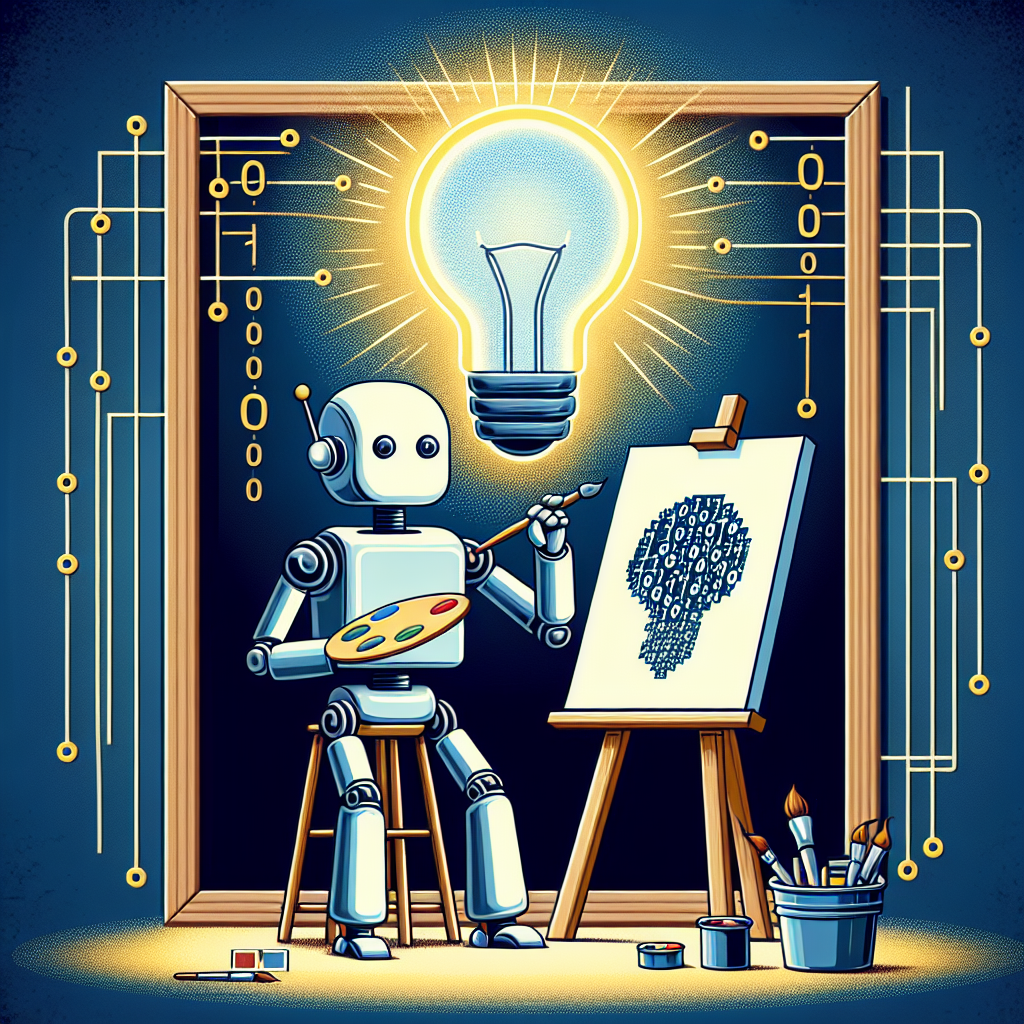Artificial Intelligence (AI) has made significant strides in recent years, with applications ranging from autonomous vehicles to medical diagnostics. However, one area where AI has made particularly exciting advancements is in the realm of creativity. By leveraging machine learning algorithms and neural networks, AI systems are now capable of generating art, music, and even writing that is indistinguishable from human creations. This has raised fascinating questions about the boundaries of AI and creativity, and how these technologies can be harnessed to enhance human creativity rather than replace it.
Exploring the Boundaries of AI and Creativity
Artificial intelligence has long been associated with logic, reasoning, and problem-solving. However, recent developments in machine learning have enabled AI systems to exhibit a level of creativity that was once thought to be unique to humans. By feeding these systems vast amounts of data and training them to recognize patterns, AI can now generate original works of art, music, and literature that rival those created by humans.
One of the most well-known examples of AI creativity is Google’s DeepDream project, which uses neural networks to generate surreal and dreamlike images. By analyzing millions of images and identifying common patterns, DeepDream can create intricate and visually stunning artworks that blur the line between human and machine creativity. Similarly, AI systems like Aiva and Amper are capable of composing original music that is indistinguishable from pieces composed by human musicians.
In the realm of writing, AI systems like OpenAI’s GPT-3 have demonstrated the ability to generate coherent and engaging text that mimics human writing styles. These systems can generate anything from news articles to poetry, sparking discussions about the role of AI in journalism and literature. Some argue that AI-generated content could revolutionize the way we consume media, while others worry about the implications for human creativity and expression.
Despite these advancements, there are still limitations to AI creativity. While AI systems can generate impressive works of art, music, and writing, they lack the emotional depth and intuition that human creators possess. AI creations may be technically flawless, but they often lack the soul and emotion that make human creations truly resonate with audiences. Additionally, AI systems are still limited by the data they are trained on, meaning that their creativity is ultimately derived from human input.
Another challenge in exploring the boundaries of AI and creativity is the ethical implications of using AI to generate creative works. As AI systems become more advanced, questions arise about ownership, attribution, and plagiarism in the realm of AI-generated content. Who owns the rights to a piece of music composed by an AI system? Should AI-generated content be considered original, or simply a derivative work of the data it was trained on? These are complex questions that require careful consideration as AI continues to evolve.
FAQs
Q: Can AI truly be creative?
A: While AI systems can generate impressive works of art, music, and writing, their creativity is ultimately derived from the data they are trained on. AI lacks the emotional depth and intuition that human creators possess, which can limit the originality and resonance of AI-generated content.
Q: What are some examples of AI creativity?
A: Examples of AI creativity include Google’s DeepDream project, which generates surreal and dreamlike images, and AI systems like Aiva and Amper, which compose original music. OpenAI’s GPT-3 is another example of AI creativity, generating coherent and engaging text that mimics human writing styles.
Q: What are the limitations of AI creativity?
A: AI systems lack the emotional depth and intuition that human creators possess, limiting the originality and resonance of AI-generated content. Additionally, AI systems are still limited by the data they are trained on, meaning that their creativity is ultimately derived from human input.
Q: What are the ethical implications of using AI to generate creative works?
A: Ethical questions arise around ownership, attribution, and plagiarism in the realm of AI-generated content. Who owns the rights to a piece of music composed by an AI system? Should AI-generated content be considered original, or simply a derivative work of the data it was trained on? These are complex questions that require careful consideration as AI continues to evolve.
In conclusion, the boundaries of AI and creativity are constantly being pushed as technology advances. While AI systems can generate impressive works of art, music, and writing, they are ultimately limited by the data they are trained on and lack the emotional depth and intuition that human creators possess. As AI continues to evolve, it is important to consider the ethical implications of using AI to generate creative works and how these technologies can be harnessed to enhance human creativity rather than replace it.

